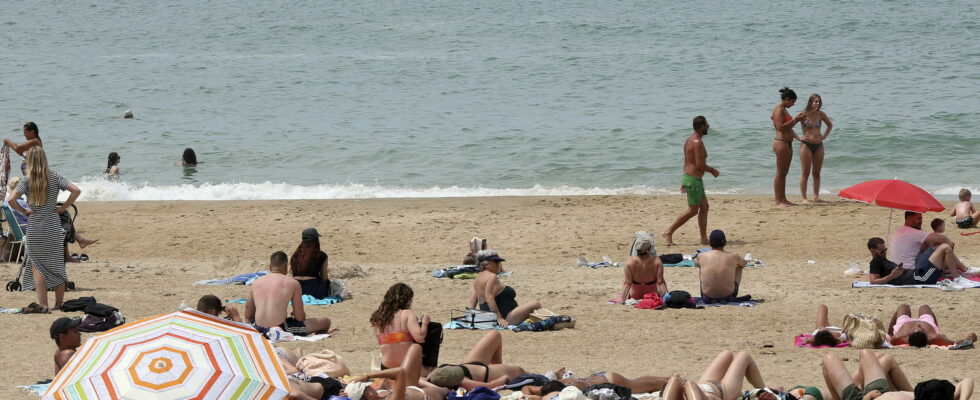A beach in Biarritz has been forced to close following an Ostreopsis alert.
Already in 2021, this algae had ruined the holidays of hundreds of swimmers in France. This year, it is making a comeback on the French coast. Named Ostreopsis, this micro algae proliferates in theoretically warm (temperature above 20°C) and calm waters, near rocky coastlines and can be toxic to humans. To date, 900 cases of poisoning from this algae have been recorded in France, according to a communicated from the National Agency for Food and Health Safety (ANSES).
The problem is that this algae is invisible to the naked eye except when its concentration is high. In this case, masses of gelatinous brown matter can be visible on the surface of the water or in deposits on rocks and macro-algae. The toxins produced by Ostreopsis then disperse in the sea spray and can affect swimmers but also people walking near the seaside. People exposed to the microalga Ostreopsis, through swimming or inhalation of sea spray, may experience symptoms generally benign such as:
- cough or sore throat
- runny nose and eyes
- nosebleeds
- breathing difficulties
- fever
- tremors and muscle pain
- headaches
- nausea
- or even skin rashes.
These symptoms usually appear within 6 hours after exposure, even short and occasional, and usually disappear within 3 to 4 dayswithout complications. However, it is better to be careful, insists the Basque Country Community on its website. Fragile people (with a history of ENT, pulmonary diseases – asthma, chronic bronchitis, allergies, cardiovascular diseases – hypertension, arrhythmia, stroke – diabetes, etc.) should avoid walking along the coast when an alert is in effect on a beach. It is also advisable to shower thoroughly (body and hair) as soon as you get out of the ocean. People with suggestive symptoms (marked respiratory discomfort, muscle pain and prolonged tremors) should consult a doctor, reporting their exposure to Ostreopsis, and contact 15 (SAMU) only in the event of a life-threatening emergency.
For the moment, this algae is only worrying on the Basque coast. The beach of Port Vieux in Biarritz had to temporarily close, between July 21 and 23, after several reports by bathers. “This algae survives the winter on the coasts of the Basque Country, which explains its proliferation on the coast in summer”explains Elvire Atajan, director of the Lerar-Ifremer laboratory, to France 3. This algae is closely monitored. To detect its presence and prevent potential dangers, water samples are taken every week on 9 beaches on the Basque coast.
